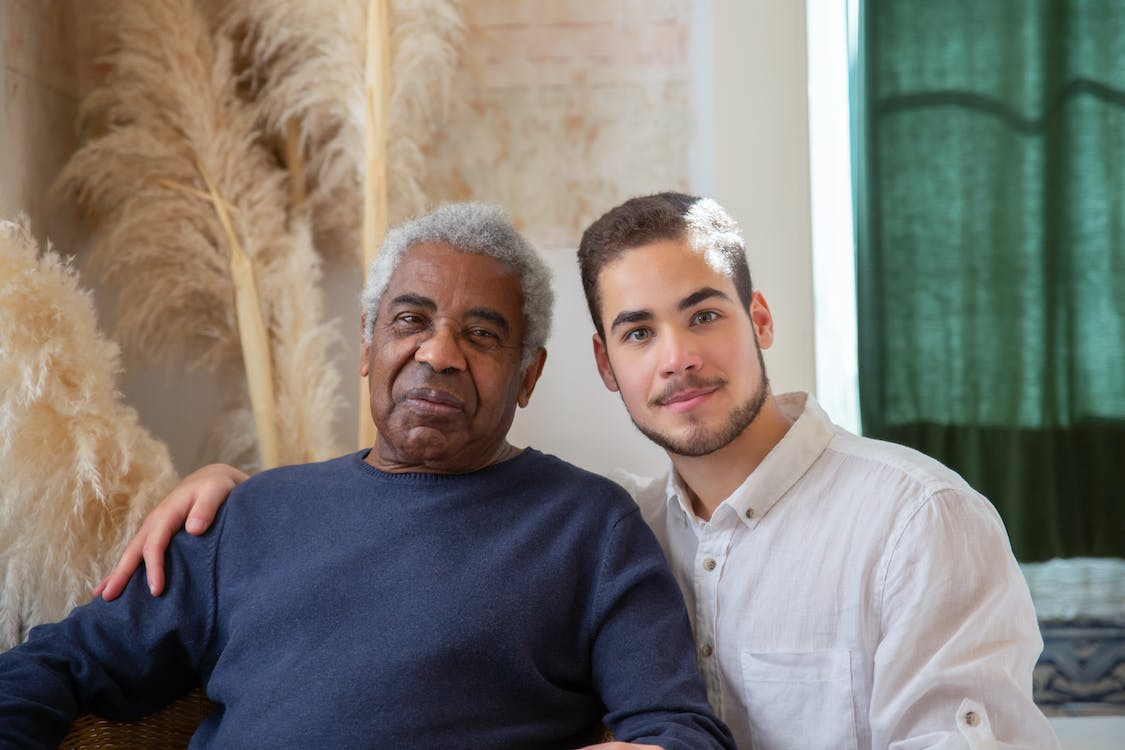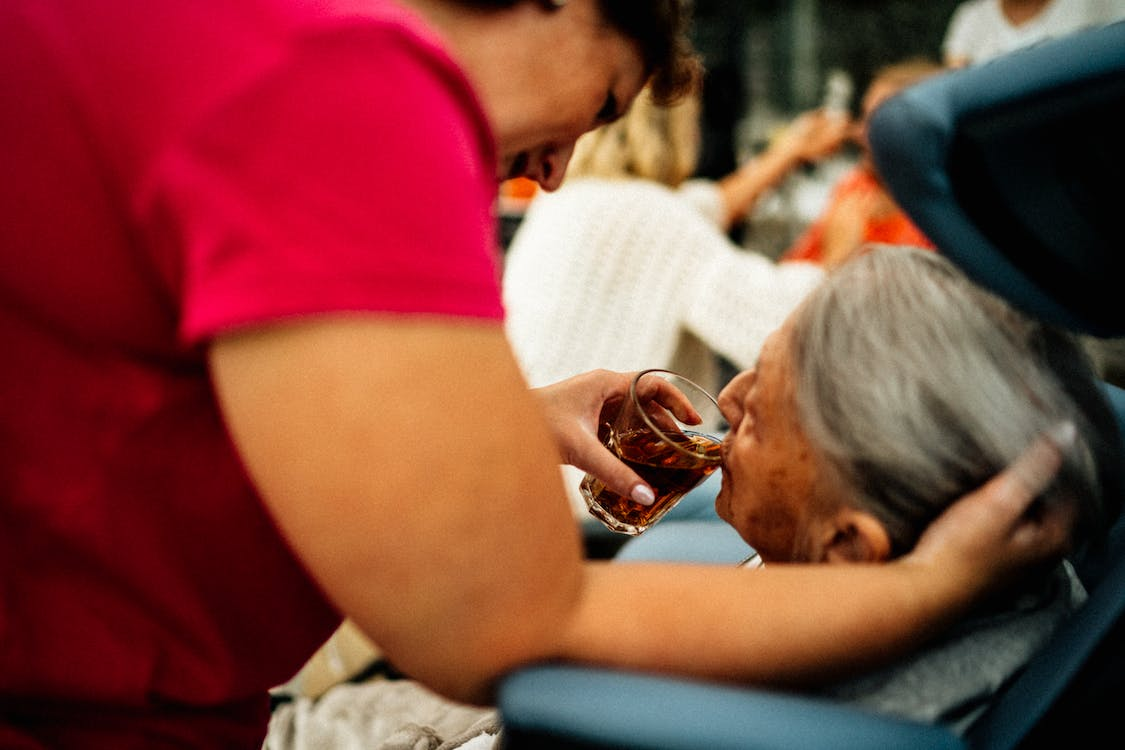As one begins to age and start to experience different mental and physical health challenges, there is often a strong desire to age in a place they can call home. A statistical report reveals that around 90% of adults over 60 want to grow older in a place they feel familiar with.
However, finding suitable senior living arrangements or caregivers is an overwhelming process. It takes time to do adequate research, read online reviews, and find supportive communities or in-home caregivers who can provide you with the care you require.
This is when most seniors begin to look up the concept of structured family care.
This approach helps aging adults enjoy the best of both worlds: live in their homes for aging in place with complete independence and have the loving support of their families.
If you’re looking to learn more about the benefits and effectiveness of structured family care, then you’re at the right place!
Read on to learn how implementing a structured family care plan can promote the well-being and happiness of your aging loved ones.
What Is Structured Family Care for Seniors?

Structured Family Care for Seniors in Indianapolis is a program that offers financial support and caregiving services for families in Indianapolis. This program ensures that families with a senior or disabled loved one can get the help and support they require.
Structured family care for seniors is an innovative approach to emphasize family support and care. This program is specifically designed for families that are living with elderly individuals or disabled family members who require assistance with their daily living activities.
This model is also prevalent in Indianapolis, where it’s become quite popular for its patient-centered and cost-effective nature.
Several families are opting for this caregiving option because it focuses on involving the families and creating a nurturing and familiar environment for the individual.
At its core, the structured family care program centers around the concept of a “care team” since it involves both family members and professional caregivers.
This becomes a collaborative effort that primarily focuses on enhancing the quality of life for seniors and making sure that they get the care and attention that they deserve. The family members play a major role in the daily caregiving tasks and making everyday decisions. This helps to foster a sense of responsibility and involvement.
This program also offers a wide array of services that have been specifically tailored to meet the needs of the aging adult or disabled individual. The customized care plans include medication management, assistance with daily tasks, transportation, personal hygiene, meal preparation, and more.
The model also has respite care that allows the family caregivers to take a much-needed break while maintaining consistent care for seniors.
The Importance of Healthy Aging For Seniors with Structured Family Care

Structured family care promotes healthy aging for senior adults. But what exactly is healthy aging?
Healthy aging means the ability to maintain an independent, healthy, and active lifestyle that allows one to live an empowering and purposeful life.
Every aging adult needs to stay proactive when living with mental and physical health challenges at home. Proactive behavior means exercising regularly, taking medication on time, eating a nutritious and well-balanced diet, avoiding smoking, getting optimized sleep, and managing the symptoms of chronic health conditions.
All of these proactive habits promote their overall health and well-being.
However, chronic and progressive diseases like dementia and diabetes can have a huge impact on one’s everyday life. These health conditions can make living at home more challenging and overwhelming, especially if there is no help or assistance. This is where structured family care can help.
With structured family care for seniors, getting quality care and professional health services becomes a priority. This helps to improve the individual’s quality of life and helps them maintain a sense of independence while helping them manage their symptoms.
Structured family care also helps to create a highly suitable and nurturing environment for seniors, which makes them feel supported and cared for.
Structured family care isn’t just an incredibly effective way to handle the needs and requirements of senior adults but helps to ease the burden on the family members who are tasked with caregiving responsibilities.
Who is Eligible for the Structured Family Care Program?

The structured family caregiving program has the following requirements.
You will get financial compensation if:
- You are biologically related to the aging individual as a grandson, daughter, etc., or are related to them through marriage as a son-in-law or daughter-in-law.
- You are currently living with the person and are their primary caregiver
- The aging individual is eligible to receive Medicaid benefits and participates under the SOURCE or CCSP program.
You are eligible to receive care if:
- You need assistance with your everyday activities like meal prepping, bathing, dressing, etc.
- You’re a participant of the SOURCE or CCSP Waiver program
- You’re eligible for Medicaid
- You are living with the person who is offering caregiving services
The Daily Tasks for Taking Care of the Senior Family Member
In structured family caregiving, caregivers qualify to provide the following caregiving tasks:
- Eating
- Dressing
- Bathing
- Meal preparation
- Getting up and down in a chair
- Getting in and out of their beds
- Transportation to appointments
- Medication management
- Moving around their living spaces
- Other activities
Creating An Effective Structured Family Care Plan

Here is how:
Create Adaptable Living Spaces
The foundation of healthy aging and aging in place successfully begins with creating an adaptable living space for seniors.
Aging adults face a wide range of physical health challenges that can affect their mobility and lead to physical limitations. Mobility problems may include unsteadiness when walking, increased risk of falls when getting up and down into bed, and struggle with maintaining balance.
Several health conditions like joint problems, muscle weakness, disease, pain, and other neurological difficulties can affect mobility.
It is incredibly important to craft a more accessible and adaptable living space to make it as safe as possible.
Here are some considerations:
- Accessibility: You can start by installing grab bars, ramps, and handrails to prevent falls and make movement around the house easy and convenient. You can also consider widening the doorways to allow the movement of wheelchairs around the house. Let’s look at how you can make your home more accessible.
Widen the Doorways
If your aging loved one uses mobility aids like a wheelchair or a walker to navigate through their living spaces, you need to widen all the doorways of the home, even the bathroom. The cost of widening the doorways may depend on the outlets in the home, insulation, and the placement of electrical switches.
Shower and Bathtub Modifications
The bathroom is where any aging adult with mobility issues is most likely to experience falls and injuries. Consider replacing the bathtub with a walk-in shower that is much safer to enter and exit from compared to a bathtub. You can also install a walk-in tub instead of the traditional bathtub.
Safety bars and safety strips are also effective when it comes to preventing falls.
Flooring Modifications
If your existing home’s flooring has old and shaggy carpeting, it’s time to consider making flooring modifications. Seniors are very likely to fall or trip on old and shaggy carpeting, and this type of flooring will also hinder the movement of their wheelchairs or walkers.
Laminate, hardwood, tile, and vinyl floors allow easy wheelchair movement and will make navigating the house much easier for your aging loved ones.
Make sure to remove any rugs or try taping them down to secure them into place to prevent falls.
Install Ramps
When you have exterior stairs, it can become quite challenging for people with physical health issues or mobility problems to go out of the house. This is why ramp installation is also considered an important home modification. Hire a licensed contractor to get the correct rise and height of the ramp for your loved one, or you can even invest in a non-permanent or mobile ramp that you can install by yourself.
- Bathroom modifications: Living at home means comfort and convenience. If you’re providing long-term care for an aging loved one, then making bathroom modifications is also incredibly important to make their life safe and comfortable.
- Kitchen modifications: Seniors like their independence and often like to prepare and make meals for themselves. However, with their health conditions, they might not find their kitchen appliances in ideal locations. You will have to hire professional contractors to adjust the sink and counter height for easier access, especially if they’re in a wheelchair. You can also install easy-to-grab cabinet handles.
- Single-level living: When possible, arrange living spaces on one level to eliminate the need for taking the stairs. The reason many senior adults end up moving into nursing homes is because their homes are inaccessible for people with mobility issues and they need to age in a place where they can be supported. According to a reportby the Journals of Gerontology, indoor inaccessibility is one of the primary reasons why seniors decide to shift to retirement homes. This is when you can consider planning and creating accessible spaces in your house to help your aging loved ones live an easier life. Here are some modifications you can consider making:
Establishing a Caregiving Routine

Structured family care means having a well-organized and suitable caregiving schedule that allows seniors to receive assistance while letting the caregiving family members balance their own lives.
Here is how you can establish an appropriate caregiving schedule.
Assess Their Needs
Start by taking a look at your aging loved one’s specific needs and requirements. Find out everything you can about their health condition and identify their needs like medication management, transportation, meal preparation, companionship, etc. Don’t hesitate to speak directly to your loved one and ask them about what they need.
Create a Family Calendar
Once you have a comprehensive understanding of their needs and requirements, develop a shared family calendar that outlines who will be responsible for the caregiving duties on specific days and times.
This schedule should be flexible, and you will need to take into account each caregiving family member’s availability.
Schedule Regular Meetings
Plan regular family meetings to discuss and make any adjustments needed in the caregiving schedule. This is when you need to communicate openly and address any challenges that could be affecting the caregivers.
Have a Backup Plan
You need a backup plan in case the primary caregiver is somehow unable to fulfill their duties due to any commitment or illness. This will ensure the continuity of care.
Have Open Communication
Open communication is a crucial part of structured family care. This helps to maintain an open and honest dialogue among the family members, preventing misunderstandings and ensuring the well-being of the senior.
Here are some communication tips that can help:
- Respect boundaries:Firstly, respect each family member’s boundaries and their schedule and commitments outside the caregiving. Ensure that you’re not overburdening anyone when it comes to deciding on the caregiving duties.
- Get regular updates: Keep everyone informed and updated about the senior’s health. Remember to discuss any changes in their health condition, medication changes, or medical appointments.
- Listen to their concerns:Encourage each caregiving family member to voice their ideas and concerns and actively listen to promote a collaborative caregiving approach.
- Seek outside support:Lastly, don’t hesitate to reach out to professionals and caregivers from support groups or even hire homecare services if you feel burnt out and overwhelmed. External assistance can alleviate the stress of caregiving and help you improve the quality of your care.
So, if you’re looking for professional and well-trained caregivers in Marion County, Indianapolis, check out King’s Grace Homecare today.
At King’s Grace Homecare, we take the health of your aging loved ones very seriously. From traumatic brain injury assistance to professional homecare services, we can handle it all. Our home caregivers and structured family caregivers have a decade of experience providing comprehensive caregiving services and will go above and beyond to ensure your aging loved ones live comfortable lives.
Reach out to us now to learn more about our personal care services.


